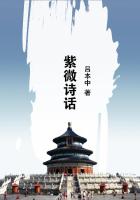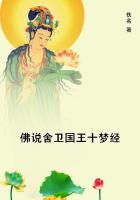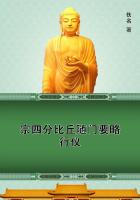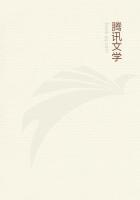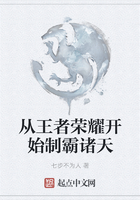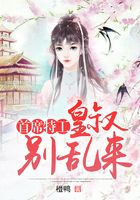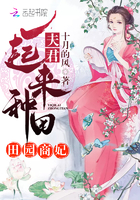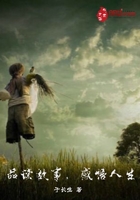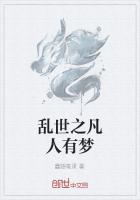the "Iliad" and the "Odyssey". 3) The general structure of these epics is clearly imitative. As M.M. Croiset remark, the abusive Thersites in the "Aethiopis" is clearly copied from the Thersites of the "Iliad"; in the same poem Antilochus, slain by Memnon and avenged by Achilles, is obviously modelled on Patroclus. 4) The geographical knowledge of a poem like the "Returns" is far wider and more precise than that of the "Odyssey". 5) Moreover, in the Cyclic poems epic is clearly degenerating morally -- if the expression may be used. The chief greatness of the "Iliad" is in the character of the heroes Achilles and Hector rather than in the actual events which take place: in the Cyclic writers facts rather than character are the objects of interest, and events are so packed together as to leave no space for any exhibition of the play of moral forces. All these reasons justify the view that the poems with which we now have to deal were later than the "Iliad" and "Odyssey", and if we must recognize the possibility of some conventionality in the received dating, we may feel confident that it is at least approximately just.
The earliest of the post-Homeric epics of Troy are apparently the "Aethiopis" and the "Sack of Ilium", both ascribed to Arctinus of Miletus who is said to have flourished in the first Olympiad (776B.C.). He set himself to finish the tale of Troy, which, so far as events were concerned, had been left half-told by Homer, by tracing the course of events after the close of the "Iliad". The "Aethiopis" thus included the coming of the Amazon Penthesilea to help the Trojans after the fall of Hector and her death, the similar arrival and fall of the Aethiopian Memnon, the death of Achilles under the arrow of Paris, and the dispute between Odysseus and Aias for the arms of Achilles. The "Sack of Ilium"(13) as analysed by Proclus was very similar to Vergil's version in "Aeneid" ii, comprising the episodes of the wooden horse, of Laocoon, of Sinon, the return of the Achaeans from Tenedos, the actual Sack of Troy, the division of spoils and the burning of the city.
Lesches or Lescheos (as Pausanias calls him) of Pyrrha or Mitylene is dated at about 660 B.C. In his "Little Iliad" he undertook to elaborate the "Sack" as related by Arctinus. His work included the adjudgment of the arms of Achilles to Odysseus, the madness of Aias, the bringing of Philoctetes from Lemnos and his cure, the coming to the war of Neoptolemus who slays Eurypylus, son of Telephus, the ****** of the wooden horse, the spying of Odysseus and his theft, along with Diomedes, of the Palladium: the analysis concludes with the admission of the wooden horse into Troy by the Trojans. It is known, however (Aristotle, "Poetics", xxiii; Pausanias, x, 25-27), that the "Little Iliad" also contained a description of the sack of Troy.
It is probable that this and other superfluous incidents disappeared after the Alexandrian arrangement of the poems in the Cycle, either as the result of some later recension, or merely through disuse. Or Proclus may have thought it unnecessary to give the accounts by Lesches and Arctinus of the same incident.
The "Cyprian Lays", ascribed to Stasinus of Cyprus (14) (but also to Hegesinus of Salamis) was designed to do for the events preceding the action of the "Iliad" what Arctinus had done for the later phases of the Trojan War. The "Cypria" begins with the first causes of the war, the purpose of Zeus to relieve the overburdened earth, the apple of discord, the **** of Helen.
Then follow the incidents connected with the gathering of the Achaeans and their ultimate landing in Troy; and the story of the war is detailed up to the quarrel between Achilles and Agamemnon with which the "Iliad" begins.
These four poems rounded off the story of the "Iliad", and it only remained to connect this enlarged version with the "Odyssey". This was done by means of the "Returns", a poem in five books ascribed to Agias or Hegias of Troezen, which begins where the "Sack of Troy" ends. It told of the dispute between Agamemnon and Menelaus, the departure from Troy of Menelaus, the fortunes of the lesser heroes, the return and tragic death of Agamemnon, and the vengeance of Orestes on Aegisthus. The story ends with the return home of Menelaus, which brings the general narrative up to the beginning of the "Odyssey".
But the "Odyssey" itself left much untold: what, for example, happened in Ithaca after the slaying of the suitors, and what was the ultimate fate of Odysseus? The answer to these questions was supplied by the "Telegony", a poem in two books by Eugammon of Cyrene (fl. 568 B.C.). It told of the adventures of Odysseus in Thesprotis after the killing of the Suitors, of his return to Ithaca, and his death at the hands of Telegonis, his son by Circe. The epic ended by disposing of the surviving personages in a double marriage, Telemachus wedding Circe, and Telegonus Penelope.
The end of the Cycle marks also the end of the Heroic Age.
The Homeric Hymns The collection of thirty-three Hymns, ascribed to Homer, is the last considerable work of the Epic School, and seems, on the whole, to be later than the Cyclic poems. It cannot be definitely assigned either to the Ionian or Continental schools, for while the romantic element is very strong, there is a distinct genealogical interest; and in matters of diction and style the influences of both Hesiod and Homer are well-marked.
The date of the formation of the collection as such is unknown.
Diodorus Siculus (temp. Augustus) is the first to mention such a body of poetry, and it is likely enough that this is, at least substantially, the one which has come down to us. Thucydides quotes the Delian "Hymn to Apollo", and it is possible that the Homeric corpus of his day also contained other of the more important hymns. Conceivable the collection was arranged in the Alexandrine period.

